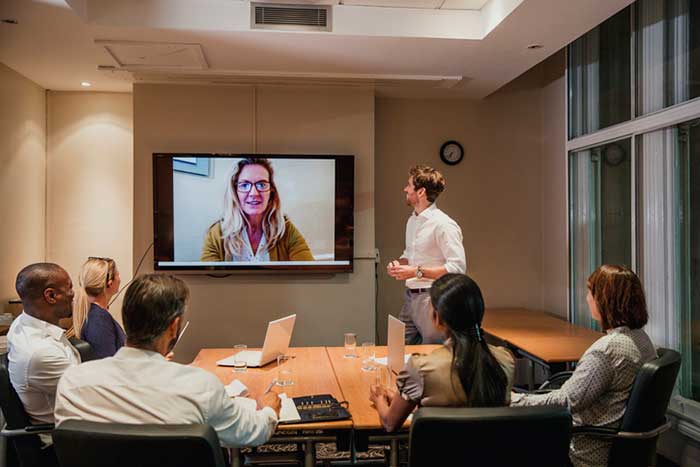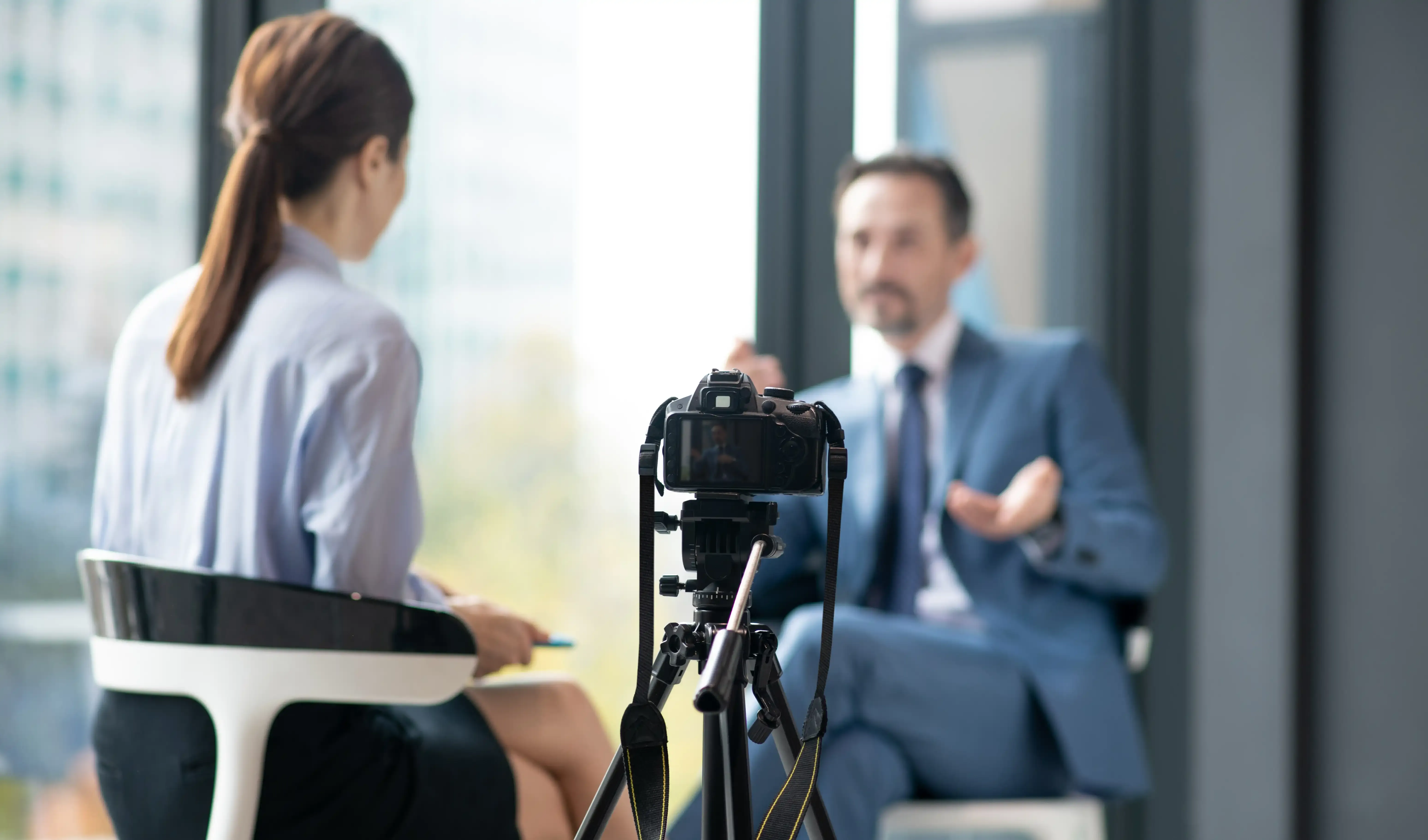The Value of Legal Video Depositions in Modern Legal Providers: What You Must Know
Legal video depositions have actually ended up being vital in today's legal landscape. They give a multidimensional sight of witness statements that traditional records just can not match. By capturing both spoken and non-verbal communication, these depositions boost the general understanding of a witness's trustworthiness. However, the performance of video depositions hinges on different elements, consisting of compliance with lawful requirements and best techniques (legal video depositions). Discovering these aspects reveals their true significance in contemporary legal services
What Are Legal Video Clip Depositions?
Lawful video depositions offer as a vital device in the litigation process. They include videotaping witness testaments in a video style, catching both non-verbal and spoken communication. This technique enables attorneys to record the demeanor, expressions, and reactions of witnesses, supplying a richer context for the testament. Generally carried out in a regulated setting, these depositions are led by lawyers that ask questions while a court reporter records the discussion. The resulting video can be essential for test prep work, as it enables lawyers to evaluate the credibility of witnesses and fine-tune their approaches. In addition, lawful video clip depositions can be made use of in numerous lawful contexts, varying from civil disagreements to criminal instances. The aesthetic and auditory elements of video clip depositions enhance the presentation of proof, making it an important component in the modern legal landscape. Overall, they add substantially to the performance and efficiency of legal procedures.

Advantages of Video Clip Depositions Over Typical Approaches
Video clip depositions use many benefits compared to conventional methods of taking witness testimonies. One substantial advantage is the ability to record both aesthetic and audio aspects, offering a more thorough document of the witness's statements. This dual format boosts clearness and allows lawyers to reference certain nuances throughout test prep work. Furthermore, video depositions promote remote involvement, making it simpler for witnesses who might be not available for in-person appearances as a result of geographical restrictions or health issues.Moreover, video clip depositions can speed up the total deposition process, reducing the moment and costs related to traveling and logistics. They likewise boost availability, as tape-recorded depositions can be conveniently shared among lawful teams and referenced at any moment. This comfort adds to far better case monitoring and preparation. On the whole, video depositions stand for a modern, effective method to collecting witness statements, aligning with the progressing needs of the lawful career.
The Function of Body Movement and Tone in Testimonies

In lawful video depositions, body movement and tone play vital functions in communicating a witness's reputation and credibility. Nonverbal hints can give understandings into a witness's emotion, influencing exactly how their testament is perceived. Comprehending the influence of these components is important for jurors and attorneys alike when examining the integrity of a testament.
Nonverbal Interaction Insights
While spoken interaction is often emphasized in legal testimonies, nonverbal cues such as body language and tone play a vital function in communicating integrity and feeling. Onlookers of depositions might keep in mind that a witness's posture, motions, and faces can considerably affect assumptions of dependability. Constant eye contact may signify self-confidence, while preventing look could suggest deceit or pain. In a similar way, the intonation-- its quantity, pitch, and pace-- can pass on feelings of genuineness or uncertainty. Attorneys should be attuned to these nonverbal signals, as they usually supply crucial context that complements talked words. Understanding these nuances can enhance the performance of depositions and affect the outcome of legal process.
Emotional Tone Influence
The emotional tone conveyed throughout legal testaments considerably impacts exactly how a witness is regarded. Body language, singing inflections, and facial expressions play essential roles fit the narrative of a statement. A witness exhibiting confidence via stable eye call and a calm tone can impart a feeling of integrity and engagement. Alternatively, signs of anxiousness, such as fidgeting or a shaky voice, might lead to uncertainty regarding their account. The subtleties of psychological expression can affect the interpretation of truths, making it crucial for lawyers to identify these cues. In video depositions, the aesthetic and auditory components integrate, stressing the significance of psychological tone in conveying sincerity and reliability within the lawful procedure.
Credibility and Credibility
A crucial consider establishing reliability and dependability throughout testaments exists in the witness's body movement and tone of voice. Observers frequently depend on non-verbal hints-- such as eye get in touch with, pose, and motions-- to analyze a witness's genuineness. As an example, a witness that keeps eye contact and displays open body movement might be regarded as even more straightforward and reliable than one who prevents eye get in touch with or appears blocked. In addition, intonation plays a necessary function; a stable, calm tone can strengthen the integrity of the statement, while changes in pitch or volume may elevate questions. Eventually, the combination of body movement and vocal tone substantially affects exactly how a witness's statements are received and analyzed in a legal context.
Best Practices for Performing Video Depositions
Conducting video clip depositions needs mindful preparation and execution to assure a clear and efficient discussion of testimony. It is crucial to choose a peaceful, well-lit location to lessen distractions and safe and secure optimal video clip quality. The tools should be checked ahead of time, consisting of cameras, microphones, and lights, to avoid technological concerns during the deposition.Next, events involved should assess the format and treatments ahead of time, seeing to it that everybody recognizes their roles. The deponent must be oriented on go to website the process, including just how check my site to respond clearly and concisely.Additionally, preserving a specialist attitude throughout the session is essential. This includes abstaining from talking over each other and confirming that all concerns are guided suitably. Finally, it is vital to tape the deposition in a layout that permits for very easy playback and evaluation, protecting the honesty of the statement for future use.
Legal Considerations and Compliance Issues
Exactly how do legal considerations and compliance issues affect the efficiency of video depositions? Attorneys should navigate a complicated landscape of guidelines, making sure that video clip depositions stick to jurisdictional guidelines and requirements. Compliance with laws worrying personal privacy, authorization, and videotaping approaches is crucial. Getting specific authorization from all parties entailed is essential to prevent legal repercussions.Additionally, the admissibility of video clip proof in court can hinge on conformity with procedural requirements. Making certain that the devices used fulfills technological standards is additionally crucial, as low quality can threaten the deposition's reliability.Moreover, attorneys have to know any details state legislations that govern video clip depositions, as these can vary substantially. Failure to resolve these considerations can not just endanger the integrity of the deposition however also affect the overall situation strategy, inevitably affecting the customer's legal results.
Just How Video Depositions Influence Jury Assumption
While video depositions can act as effective tools in lawful process, their influence on court perception is considerable. The aesthetic and auditory elements of video recordings give jurors with a more detailed understanding of witness disposition, credibility, and emotional actions. This multimedia approach can improve the jurors' capacity to assess the dependability of statement contrasted to traditional text-based transcripts.Moreover, video depositions enable jurors to observe body movement, intonation, and facial expressions, all of which can affect their analysis of the witness's declarations. The visibility of a witness on screen can humanize them, fostering empathy my company and connection, which might guide jurors' point of views. Conversely, a witness who appears undependable or incredibly elusive on video clip might lead to negative perceptions that influence a jury's decision. Eventually, the dynamic nature of video depositions plays a crucial duty in forming just how jurors analyze proof and reach their judgments.
The Future of Video Clip Depositions in Legal Method
As innovations in technology proceed to reshape the legal landscape, the future of video clip depositions is poised for significant advancement. Technologies such as expert system, digital reality, and enhanced video conferencing tools are expected to enhance the deposition procedure and improve accessibility. Attorneys might use AI-driven analytics to analyze witness reliability and situation stamina a lot more effectively.Moreover, the combination of online fact might allow juries to experience immersive simulations of depositions, giving much deeper context and understanding. Furthermore, the trend towards remote depositions is most likely to continue, providing higher versatility for attorneys and customers alike.As remote job ends up being increasingly stabilized, video clip depositions will likely come to be common method, minimizing costs and time restraints linked with typical techniques. Overall, these technical advancements guarantee to enhance the performance, efficiency, and accessibility of video clip depositions in legal method, eventually changing how lawyers get ready for trial.
Often Asked Inquiries
Just How Much Do Lawful Video Depositions Commonly Expense?

Can Video Depositions Be Utilized in Any Kind Of Sort Of Situation?
Video clip depositions can be utilized in numerous sorts of cases, consisting of civil, criminal, and family regulation. Their flexibility enables lawyers to existing witness testimonies successfully, adjusting to the details requirements of different legal situations.
What Devices Is Needed for a Video Deposition?
To carry out a video clip deposition, essential devices consists of a high-grade camera, microphone, illumination, and a trusted recording device. Additionally, a computer with modifying software application might be essential for post-production and formatting the last video clip.
How Long Does a Typical Video Deposition Last?
A regular video deposition lasts between 2 to 4 hours, relying on the intricacy of the instance and the number of questions positioned. Extended sessions might happen, however breaks are usually incorporated for participant convenience.

Are Video Clip Depositions Admissible in Court?
Video clip depositions are normally permissible in court, supplied they abide by lawful standards and policies of proof. Their use enhances clarity and preserves witness testimony, assisting in the judicial procedure throughout hearings and trials. Legal video clip depositions have actually ended up being vital in today's legal landscape. Additionally, lawful video clip depositions can be used in different legal contexts, varying from civil disagreements to criminal situations. Furthermore, video depositions promote remote engagement, making it much easier for witnesses who may be inaccessible for in-person looks due to geographical constraints or health issues.Moreover, video clip depositions can speed up the overall deposition procedure, minimizing the time and expenses associated with traveling and logistics. Guaranteeing that the equipment made use of satisfies technological requirements is also vital, as bad quality can threaten the deposition's reliability.Moreover, attorneys have to be conscious of any kind of details state regulations that govern video clip depositions, as these can vary substantially. Furthermore, the fad toward remote depositions is most likely to continue, offering higher flexibility for clients and lawyers alike.As remote work comes to be progressively stabilized, video depositions will likely end up being basic technique, decreasing prices and time constraints connected with traditional techniques.